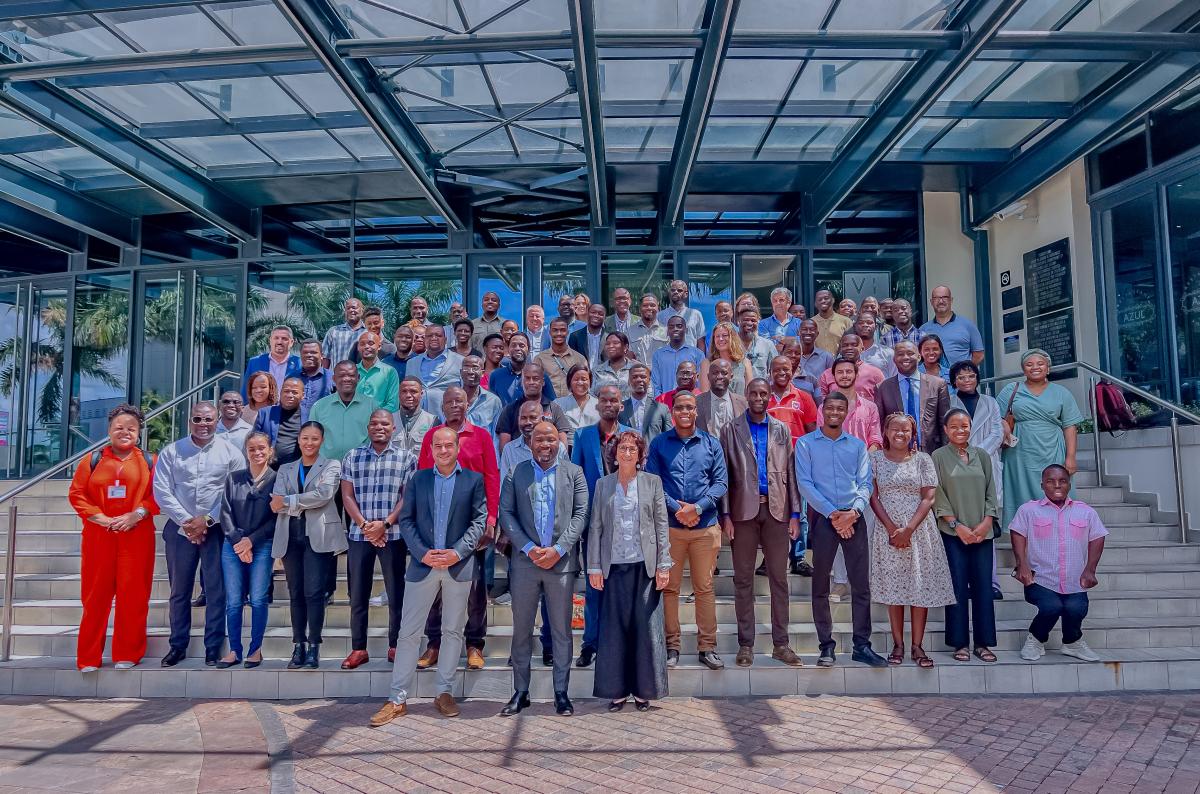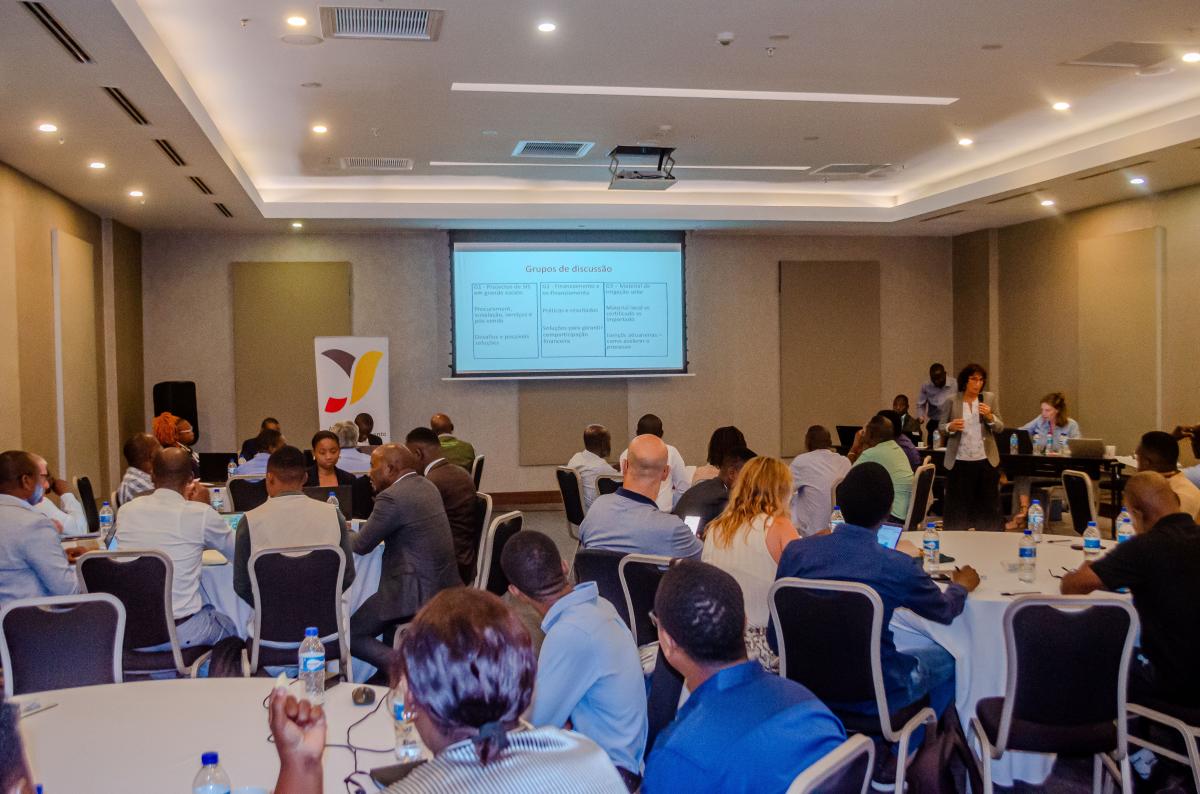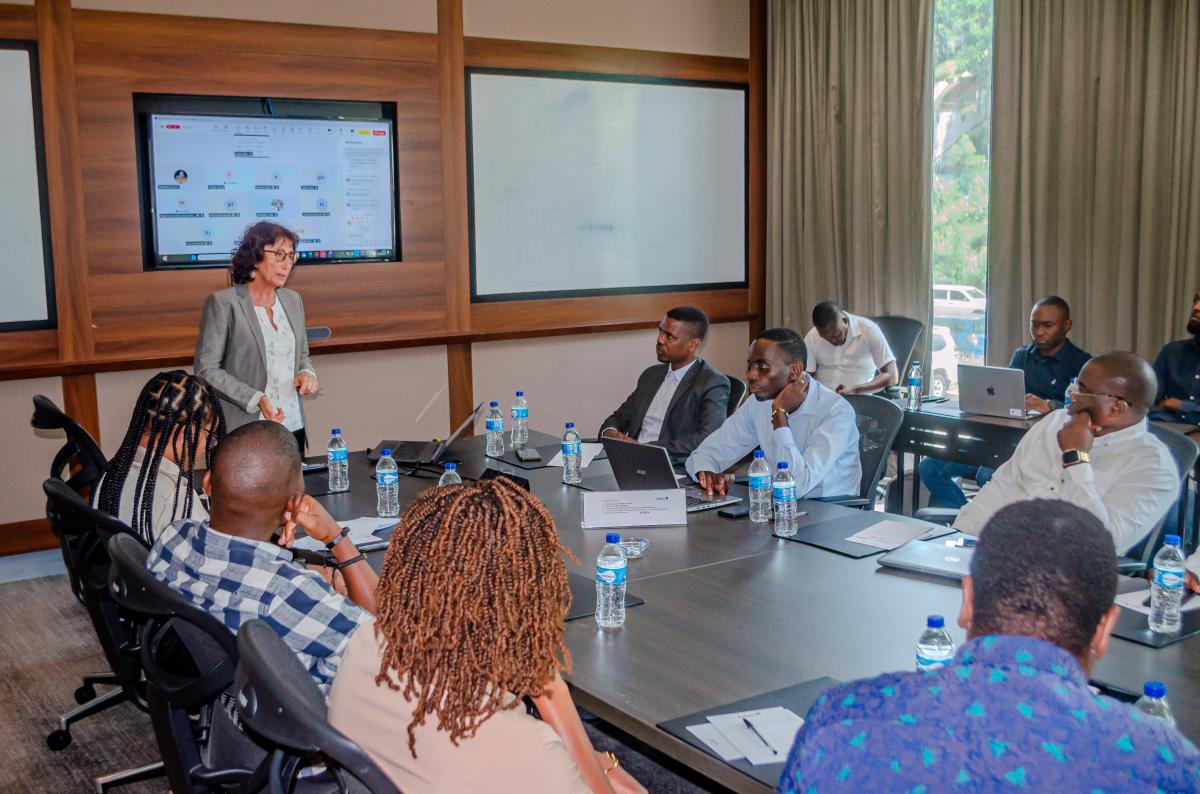Mobilising market potential to scale solar-powered irrigation in Mozambique
Enabel Mozambique
recently convened a roundtable to explore the opportunities and challenges of
scaling solar-powered irrigation schemes across the country. Over 200
participants including financiers, private sector actors, government
representatives, and international cooperation partners attended the event,
reflecting the growing interest in this innovative and climate-smart solution.
Through the
Renewable Energy for Rural Development Project (RERD2+), Enabel has already
stimulated demand for solar irrigation among farmers by co-financing up to 80%
of initial investment costs. These systems offer a compelling alternative to
traditional diesel-based irrigation: they drastically reduce operational
expenses, minimize environmental impact, and enhance climate resilience in
rural communities.
“Solar-powered irrigation is not just a technology shift but
it’s a pathway for farmers to grow commercial farming and capture agribusiness
potential in a climate-resilient way,” said Jan Verlaak, Project Manager at
Enabel Mozambique.
With more than
500 solar irrigation systems co-invested through RERD2+, demand has already
begun to outpace the program’s financing capacity. To keep momentum, Enabel
brought stakeholders together to identify strategic pathways for expanding this
rapidly growing market.
“No single actor can unlock the full potential of solar
irrigation in Mozambique; it requires coordinated action between government,
finance, and the private sector” emphasized Eng. Delfim
Vilissa, Director of INIR (National Irrigation Institute - implementation
partner for the project).
The
consensus that no single institution can resolve all market constraints
underscores the need for partnerships involving government authorities,
financial institutions, and the private sector.
Defining
smart co-financing mechanisms and creating a level playing field for the
private sector
Participants
broadly agreed on the urgent need to facilitate investment for solar-powered
irrigation systems. Although operational costs are relatively low, high upfront
capital requirements remain a significant barrier for farmers—further
compounded by a lack of effective agricultural financing mechanisms.
To unlock the
technology’s full potential, developing smarter, more accessible co-financing
models is critical. While many development partners already offer co-financing
for solar irrigation equipment, approaches vary widely, from full subsidies to
fixed percentages (e.g., 50% or 70%). Such inconsistencies can inadvertently
create competition between donor-funded programs in the same regions. Enabel
will therefore assess optimal co-financing thresholds based on farmer
typologies to maximize development impact, preserve market integrity, and
enable service providers to grow sustainably.
Service providers
at the roundtable also pointed to burdensome and unclear taxation and import
procedures for irrigation equipment. Although Mozambique offers favourable tax
conditions for fully imported kits, many providers use a hybrid
approach—importing pumps while sourcing other components locally. Resolving
these regulatory and customs bottlenecks will be key to fostering a fair and
competitive market. A follow-up strategy will outline reforms to ensure this
level playing field.
Strengthening
the private sector for long-term success
Stakeholders
agreed that the long-term sustainability of solar irrigation hinges on
fortifying the private sector. Farmers must be familiarized with new
technologies, while local service providers need support in accessing public
tenders and offering solutions in remote areas. Adapting public procurement
frameworks to include local solar-based innovations—and ensuring
capacity-building for local businesses—can make it easier for domestic
providers to participate effectively in tender processes.
However,
sustainability challenges remain, especially regarding service provision in
remote communities. High operational costs for providers often hinder outreach
to isolated areas. Supporting locally adapted business models and strengthening
supply-demand linkages will be essential for continuous, rural-based service
provision. “Co-financing must be targeted not to disrupt, but to empower the
private sector—ensuring local service providers can grow their businesses while
expanding access to climate-smart solutions,” noted Sophie Teyssier, Rural
Development Specialist at Enabel Mozambique.
A
roadmap for capturing the market potential of solar irrigation
The roundtable
served as an important step in building a platform for inclusive,
evidence-based policy dialogue. Enabel will continue the collaboration with
INIR and work with partners to design a comprehensive roadmap for scaling
solar-powered irrigation in Mozambique. This plan will clarify regulatory
frameworks, align financing mechanisms, and embed private sector–driven
solutions within broader development initiatives.
The commitment
from all stakeholders to unlock solar irrigation’s potential reflects a shared
vision: one in which Mozambique’s farmers can harness agribusiness
opportunities through sustainable, affordable, and climate-resilient
technologies.
Latest news from this project
No news



